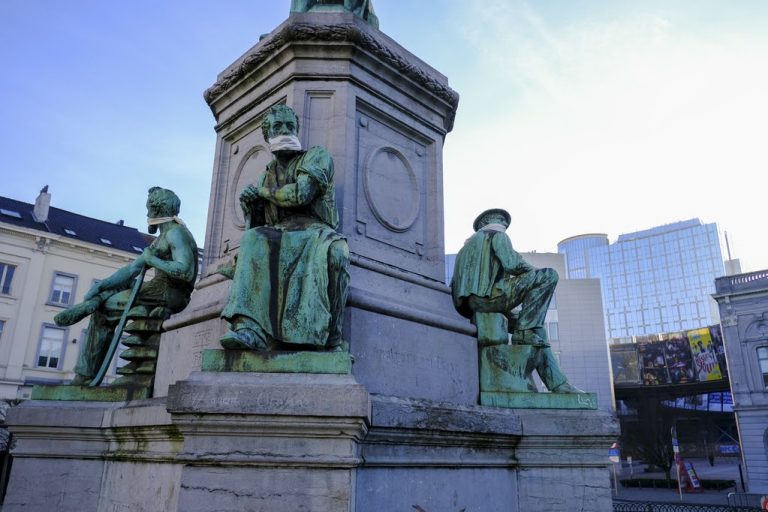
By now it is difficult to remember that one year ago hundreds of millions of Europeans were driving heated debates about the European Parliament elections, about who should head the next Commission or how the EU institutions might slowly evolve in the next 5 year cycle. Our Brussels ecosystem was changing its leaders. The solid, overly complex and – in many ways – autonomous EU institutions were receiving new governance and governors.
We all remember how the compromise of accepting von der Leyen came about, after long and persistent debates among governments of member states. It was a reminder of 2014 when Juncker turned out to be the smallest common denominator. One might certainly assume that the Union got used to change leaders in a peaceful way. Sometimes it takes longer, sometimes the compromise is more at hand, but the process has been successfully controlled.
The COVID crisis brings a complete change of lens. Leadership looks different in times of war and crisis than during peacetime. When people are dying by the hundreds a day, each word and gesture might count differently. People start to appreciate a different type of politics, and hence, a different style coming from politicians. However, institutions, in general, tend to be less adaptative and more path-dependent than their leaders. Competences are not being modified from one day to another, limits to action remain in place. Nevertheless, it is clear that leadership positions in crisis times are offering plenty more chances to take action. Hence, the question is whether the leaders of EU institutions would be aware of this opportunity and adopt a new style of communication. Shall that be the European Commission or the Parliament…
While in peacetime it is truly suitable that the EU heads of state and of government are used to change leaders, what the Union needs now are leaders of change. Proper leadership for change. Ultimately, this will depend on the Council and the national leaders, who, in turn, depend on their respective electorate, this is to say, ultimately on us.
Change for what?
It is blatantly apparent that the founding ideas behind the European Communities remain just as valid as they were after the Second World War: First and foremost, peace. But therefore, the European countries need to be independent in critical supplies, such as agriculture and food. This was a piece of evidence after the famine of the population that the war and its devastation brought upon. It was not by accident that the Common Agriculture Policy was the largest receiver of the EU budget for decades.
Our community, the EU needs to redefine what is critical supply in the 21st century. It is very different from the picture of the 1950s for sure. However, leadership has been less articulated in this regard. Since the early 2000s, the European Energy Union aimed at making the member states less dependent on foreign energy sources. It failed at several levels. National-level solutions – like the construction of the North Stream pipeline between Germany and Russia – have prevailed over the common sense of cooperation. The same goes for the stability of cyberspace, or for climate action and many other critical sectors: European cooperation is slow, weak or missing.
Over a crisis, there is potential for leaders of change to emerge. Those who look beyond their personal satisfaction, simple power-grabbing or other self-referential achievements. What one needs is exactly the opposite. However, so far these types of institutional leaders were probably less attracted by the political culture of the last years. Or, some might argue, a certain part of the electorate was less ready to accommodate them.
Now is the time for the next generation of magnanimous leaders to step up. The same way Adenauer, Schuman, Spaak or Gasperi did. In the aftermath of a shattering war, designing a structure for the next generations. In a way, this is exactly what the European Leadership Programme is hoping for in the long term: to bring up leaders who are not self-appointed but naturally taking roles of leadership. Offering a chance for the young generation of all member states, from the South to the North, East to the West, to take part in the governance of our joint vehicle, the Union. For the better of all of us, discerning in common what is truly critical in the coming decades, and to take the measures that would be necessary for a renewed and strengthened Europe after the crisis.
Botond Feledy
JESC Secretary for Leadership

